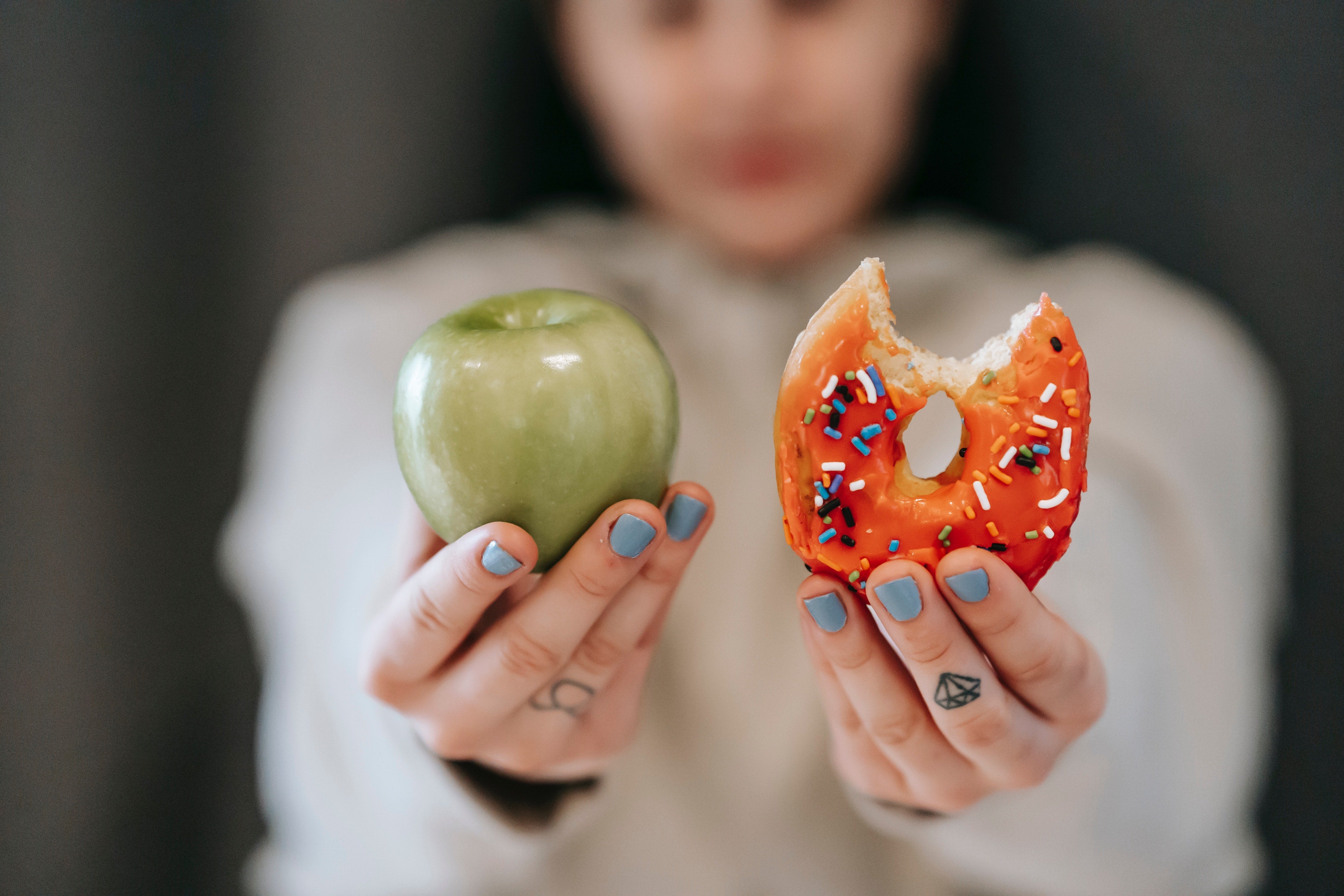Etwa 40% aller Deutschen beginnen das Jahr mit guten Vorsätzen: An erster Stelle steht das Aufgeben des Rauchens gefolgt von Gewichtsreduktion. Wir konzentrieren uns in diesem Blogbeitrag auf letzteres. Doch wie kannst Du diesen Vorsatz nachhaltig und gesund angehen?
Zunächst solltest Du Dein eigenes Warum und Dein Ziel definieren. Das Warum ist nämlich die treibende Kraft hinter Deiner Motivation, der Grund warum Du etwas tust oder eben nicht. Viele Menschen jagen Zielen hinterher, die ihnen von anderen vorgelebt werden, sie selbst aber gar nicht glücklich machen. Wenn Dein Warum also lautet „Damit andere mich nicht mehr zu dick empfinden“, reicht dies wahrscheinlich nicht für einen inneren Antrieb aus. Erforsche also, was Dich im Leben glücklich macht und suche genau hier Dein persönliches Warum. Eventuell ist es Deine Gesundheit, ein komplett neues Körper- und Lebensgefühl oder aber auch etwas ganz anderes. Nur wenn Du weißt, was Dich wirklich glücklich macht, kannst Du auch wissen, was Dich antreibt. Wichtig ist, dass Du dieses Warum klar definierst und Dir stets vor Augen hältst. Mehr darüber, wie Du Deine Ziele nicht nur motiviert angehst, sondern wie Du Ziele richtig setzen und langfristig erfolgreich umsetzen kannst, erfährst Du in unserem Blogbeitrag mehr als nur motiviert - wie Du Ziele setzen und erreichen kannst.
Wenn Du Dein Warum und Dein Ziel definiert hast, haben wir nun 8 Tipps, mit denen Du Deine Winterpfunde langfristig loswirst und Dich gleichzeitig gesünder und fitter fühlen wirst.











